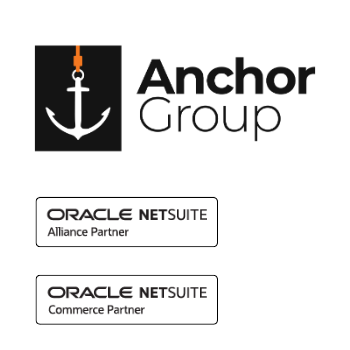
Dropshipping on BigCommerce is a smart way to run your business without the headache of managing inventory. BigCommerce developers can recommend the right BigCommerce apps and BigCommerce integrations to use to source products, streamline order fulfillment, and organize shipping. Use BigCommerce development services to get the most out of BigCommerce’s flexibility, which lets you customize your storefront to match your brand while keeping back-end processes efficient and scalable. It’s a reliable, growth-focused solution that takes the complexity out of dropshipping so you can focus on what really matters: driving sales and delighting customers.
What is Dropshipping?
Dropshipping is an ecommerce business model where merchants sell products without holding the inventory. Instead, the retailer partners with suppliers who handle the physical inventory storage, packaging, and shipping directly to customers. This model minimizes upfront costs for the merchant by removing the need for a warehouse, making it an attractive option for merchants that want low overhead costs. Supplier relationships are incredibly important since suppliers are a large element of a successful business. Suppliers ensure product quality and help with customer satisfaction.
Do you manage a 7+ figure business that has elements of dropshipping? Do you need help with website customizations or taking your website to the next level? Contact us to speak with an ecommerce expert!
The Benefits of Dropshipping
Dropshipping provides a flexible and cost-effective way to run an ecommerce business without the need for inventory management or warehousing. It allows merchants a business model that can quickly scale their businesses, test new product lines, and reach diverse customer bases with minimal upfront investment. By leveraging reliable suppliers, businesses can focus on building their brand and delivering excellent customer experiences while maintaining low operational overhead.
- Low Business Overhead: Without the need for warehousing or inventory management, operational costs are significantly reduced.
- Low Barrier to Entry: Starting a dropshipping business is simple and affordable, making it accessible for entrepreneurs with limited resources.
- Diverse Customer Base: Dropshipping enables you to reach customers worldwide, expanding your market without geographical limitations.
- Many Supplier Options: With access to numerous suppliers, businesses can source a wide range of products and easily switch suppliers if needed.
Dropshipping Challenges to Watch Out For
Dropshipping comes with challenges like low profit margins, high competition, and limited control over supply chain and product quality. However, with careful planning, smart niche selection, and building strong supplier relationships, these hurdles can be addressed effectively. By focusing on customer experience and efficient operations, businesses can still find success in this competitive model.
- Low Margins: With intense competition and easily replicable products, profit margins can be slim, especially in saturated markets.
- Highly Competitive: Many drop shippers sell identical products, making it hard to stand out and often resulting in price wars.
- No Control Over Supply Chain: Relying on suppliers means you have limited control over inventory levels, shipping times, or handling issues like stockouts.
- Product Quality: Poor-quality products from unreliable suppliers can harm your brand reputation and lead to customer dissatisfaction.
What is the Best Dropshipping Platform?
Simply put, BigCommerce is the best dropshipping platform for many merchants. Whether a portion of your catalog, like a specific BigCommerce product category, are drop shipped items or the entire catalog. BigCommerce has many features you can leverage to maximize your impact on the market.
BigCommerce Dropshipping Features
BigCommerce dropshipping features make it a great platform for many merchants.
BigCommerce Multistorefront
It’s important to be able to test out product ideas when looking for the best products to dropship. Using BigCommerce Multistorefront, you, as a store owner, can spin up new websites quickly to test new websites and product offerings. This is very valuable in the competitive landscape of dropshipping.
BigCommerce Marketing Features
Depending on your BigCommerce subscription level, you will have access to native marketing features. Using the native BigCommerce Marketing Features like promos, gift cards, and abandon cart emails is valuable for dropshipping companies because these features help entice website visitors to convert. These help sweeten the deal and keep you top of mind for your soon to be customers!
BigCommerce Omnichannel Selling
BigCommerce has robust solutions for listing your products in areas where your customers hang out! In the digital age, this is called Omnichannel selling (i.e., Multichannel selling). If your ideal customers hang out on Facebook, Instagram, or TikTok, then you should list your products there! The BigCommerce platform has omnichannel selling features (like Feedonomics) you can use to meet your customers where they spend time in the virtual landscape!
Curious about other BigCommerce features? Check out this Full List of BigCommerce Features!
Successful Dropshipping Business Models on BigCommerce
There are different ways you can set up a dropshipping business on BigCommerce. Listed below are three popular dropshipping business models with some thoughts to consider when setting up your dropshipping business on BigCommerce. It is recommended to consult an agency that offers BigCommerce development services to ensure you’re set up for success based on your dropshipping business model.
Interested in Implementing BigCommerce for your dropshipping business? Learn more about the BigCommerce Implementation process, and how our team here at Anchor Group can help you get the most out of the platform!
Lean Dropshipping Business Model
This refers to businesses that dropship a limited amount of products from their overall product offering. Typically, these businesses keep core products in their own warehouses but rely on dropshipping suppliers for niche, low-demand, or complementary items.
Here are some reasons why you should consider the limited dropshipping business model:
- Less Overstocking Risk: Reduce the likelihood of overstocking by relying on suppliers for less popular or seasonal products.
- Test New Products: Easily explore new product offerings without committing to large inventory orders.
- Focus on Core Products: Maintain control over your best-selling items while expanding your catalog with minimal risk.
Partial DropShipping Business Model
This refers to businesses that dropship a portion of their total catalog through dropshipping suppliers. Usually, this type of business will have its own warehouse(s) for some products and leverage relationships with suppliers to fulfill some items.
Here are three reasons why you should consider a partial dropshipping business model.
- Specialty Items: Unique or low-volume products sourced through dropshipping suppliers to expand their catalog without overstocking inventory (e.g., niche accessories or seasonal items).
- Bulky or Expensive-to-Stock Products: Large, high-cost items like furniture or appliances, where holding inventory would require significant storage space and capital.
- Complementary Products: Items that complement their in-stock inventory, such as branded merchandise or related accessories, allowing businesses to test new product lines without committing to stock upfront.
Full-Scale DropShipping Business Model
This refers to businesses that don’t house any product in their warehouses. These businesses market products, process orders, and send orders to suppliers. The supplier fulfills orders through their warehouse(s).
Here are three reasons why you should consider a full-scale dropshipping business model.
- Low Startup Costs: Since you don’t need to purchase or store inventory, you can start your business with minimal upfront investment, focusing your resources on marketing and customer acquisition.
- Scalability: With suppliers managing fulfillment, your business can easily scale by adding new products and reaching more customers without worrying about warehousing or logistics.
- Operational Flexibility: By outsourcing inventory management and shipping, you can focus on building your brand, optimizing your website, and enhancing customer experiences while suppliers handle the rest.
Ready setup BigCommerce for your dropshipping business? Team up with our BigCommerce experts to start droshipping with BigCommerce!
Your Role in a Dropshipping Business
Your role as a merchant is marketing and customer service. It’s really that simple!
Marketing
This cannot be overlooked. Ecommerce is competitive, and it can be easy to be overlooked. The dropshipping business model involves several key business marketing components to ensure your brand reaches the right audience.
- Create an engaging website and a compelling brand identity.
- Focus on building your brand presence through various channels, such as social media, blogs, and industry relationships.
- Leverage omnichannel (ecommerce multi-channel selling) strategies that include your website, social media platforms, and other channels.
- You are responsible for all marketing costs, including paid ads, influencer partnerships, content creation, and SEO efforts (i.e., SEO-optimized landing page).
Want help optimizing your BigCommerce website to rank high on search engines? Discover available BigCommerce SEO Services!
Customer Service
In a dropshipping business, customer service is your responsibility, and it's a critical element in building trust and a strong brand. Multiple facets go into successful customer service. Be sure to have great customer service!
- You’ll manage customer calls, order processing, and any issues that arise, such as order mistakes, product complaints, or shipping delays.
- This is your opportunity to forge meaningful connections with customers, showing that their concerns matter.
- Quick and effective resolution of problems can transform a negative experience into a positive one, ultimately driving customer loyalty.
- By staying responsive and proactive, you show customers they’re valued, which keeps them coming back for more.
The Supplier's Role in DropShipping Businesses
Dropshipping suppliers are a cornerstone of success for businesses that rely on dropshipping for some or all of their products. These suppliers take on the heavy lifting of managing inventory, fulfilling orders, and handling shipping—allowing you to run your business without the overhead of storing products. However, the stakes are high. If a supplier falls short in quality, delivery times, or stock accuracy, it’s your business that faces the customer’s frustration. Building strong supplier relationships is key to ensuring smooth operations and maintaining trust with your customers. Reliable suppliers not only help you avoid these headaches but also provide access to a wider range of products and the flexibility to adapt to market demands. Selecting the right supplier is a strategy for a thriving dropshipping business.
Inventory Management
Effective inventory management keeps things running smoothly. It’s best to sync your stock levels with suppliers in real-time; you avoid overselling or running out of popular products, keeping customers happy and orders on track.
Ecommerce Order Fulfillment
Order fulfillment is all about delivering a seamless experience. Great suppliers handle the order and shipping process like pros. They’re fast and accurate and help build confidence with your customers.
Shipping and Handling
Reliable and accurate shipping is key to customer satisfaction. Partnering with suppliers who offer transparent tracking and competitive rates means your customers always know where their orders are and when they’ll arrive. Does this sound like a big lift? You can partner with a BigCommerce agency, like Anchor Group, to get BigCommerce development services to build shipping and handling functionality on your website.
Not sure where to start? Team up with our BigCommerce experts to explore custom solutions!
Dropshipping Apps on BigCommerce
There are many BigCommerce dropshipping apps that can be helpful for your business. Listed below are a couple of key BigCommerce apps you might find helpful for your business.
Physical Products – US Based
Finding suppliers can be a challenge. Thankfully, there are BigCommerce apps that remove many of the difficulties with finding suppliers. These apps in BigCommerce have established relationships with suppliers that you gain access to once you sign up for the app. These apps feature suppliers in the US.
Physical Products - International
International dropshipping is very popular in some industries. However, finding the right suppliers can be a challenge due to time zones and language barriers. The BigCommerce apps listed below will help you find suppliers outside of the United States of America.
Dropshipping on-demand printed products has recently gained popularity. This is an example of a dropshipping business model that has extremely low startup costs. There are BigCommerce dropshipping apps that make on-demand printing easy. Use these apps to bring your creative vision to life for our store!
Product Specific
There are product-specific dropshipping apps on BigCommerce. Product-specific dropshipping includes dropshipping coffee, dropshipping jewelry, dropshipping, Home Decor Products, and more! There are ecommerce apps and integrations you can get for your store to offer these types of products through dropshipping relationships.
BigCommerce Dropshipping FAQs
What is a dropshipping business?
A dropshipping business allows you to sell products without holding inventory. When a customer makes a purchase, the order is fulfilled directly by the supplier, who handles storage, packaging, and shipping, letting you focus on sales and marketing.
What is high-ticket drop shipping?
High-ticket dropshipping involves selling products with a higher price point, typically over $1000 USD. This model allows for larger profit margins per sale, but it often requires more effort in customer service, marketing, and selecting reliable suppliers. Often, these products are heavier, so shipping or LTL freight needs to be addressed.
Is dropshipping profitable?
It can be. Dropshipping is NOT a get-rich-quick scheme. Dropshipping businesses are real businesses that take time to grow and mature. Dropshipping businesses can be profitable, especially if you find a niche with high demand and low competition. Overall success depends on things like choosing the right suppliers, managing costs, and optimizing your sales and marketing strategies. How do I start dropshipping?
What are dropshipping profit margins?
Profit margins generally range from 7%-30%. The profit margin is dependent on products sold, quantity sold, and relationships with suppliers. The margin percentage usually starts out lower for new merchants and can be increased as you sell more of the products.
For example, you might sign with supplier A at tier 3 pricing, but once you sell $100,000 worth of their product, you can qualify for tier 2 pricing. In this scenario, tier 2 pricing is better than tier 3 pricing.
How to Start Dropshipping?
To start dropshipping, choose a niche, find reliable suppliers, and set up an ecommerce platform (like BigCommerce or Shopify). After selecting your products, build a storefront, market your business, and start processing orders when customers make purchases.
Can I dropship on BigCommerce?
Yes. BigCommerce is a great platform for dropshipping businesses. It integrates with dropshipping apps and suppliers, letting you easily list products, automate order fulfillment, and manage your store.
What’s better: Shopify v.s. BigCommerce for dropshipping?
Both Shopify and BigCommerce are solid platforms for dropshipping, but BigCommerce offers more built-in features for larger-scale stores without needing extra apps. Shopify is known for its ease of use and extensive app ecosystem, making it a good choice for smaller or newer businesses.
What is digital dropshipping?
Digital dropshipping refers to selling digital products (like eBooks, software, or courses) without holding physical inventory. It's a low-risk model because there's no physical product, and the supplier delivers the product electronically, often through an automated process. Additionally, profit margins can be much higher than selling physical products because there is no development (design, manufacturing) cost once a digital product has been created.
How to find suppliers for dropshipping?
Finding reliable dropshipping suppliers can be done through platforms (i.e. AlliExpress), or by reaching out directly to manufacturers and wholesalers in your niche. Make sure to vet suppliers by checking reviews, product quality, and shipping reliability.
What is a good shipping time for dropshipping?
Ideally, dropshipping shipping times should be between 5-7 business days, but it varies depending on the supplier’s location and shipping method. Transparency is key with customers! Be clear about your shipping so customers have realistic expectations.
How to get better shipping times for dropshipping?
To improve shipping times, choose suppliers with faster fulfillment times and warehouses closer to your target market. You could also offer expedited shipping options or work with suppliers who specialize in quicker processing and delivery.
Got stuck on a step in this article?
We like to update our blogs and articles to make sure they help resolve any troubleshooting difficulties you are having. Sometimes, there is a related feature to enable or a field to fill out that we miss during the instructions. If this article didn't resolve the issue, please use the chat and let us know so that we can update this article!
Oracle NetSuite Alliance Partner & Commerce Partner
If you have questions about how our team can support your business as you implement NetSuite or SuiteCommerce, feel free to contact us anytime. Anchor Group is a certified Oracle NetSuite Alliance Partner and Commerce Partner equipped to handle all kinds of NetSuite and SuiteCommerce projects, large or small!

